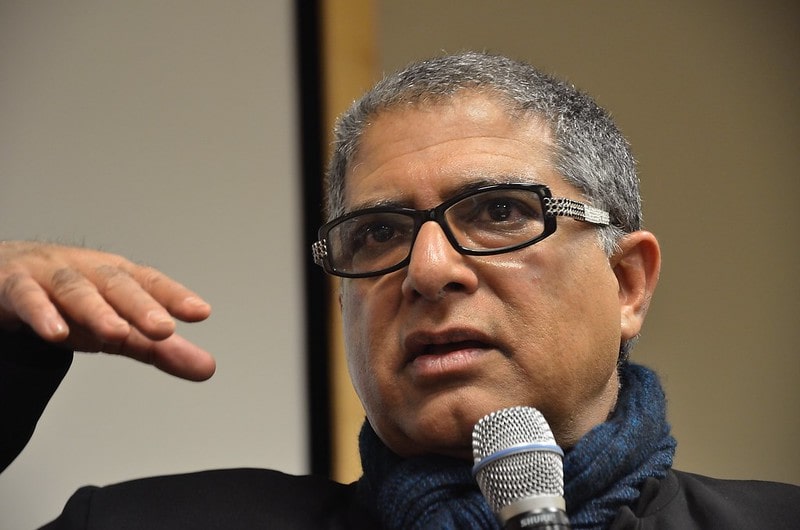By Paul Thagard, Distinguished Professor Emeritus of Philosophy, University of Waterloo
Deepak Chopra is a best-selling author who has become rich and famous by offering a combination of New Age mysticism, alternative medicine, evidence-free self-help, and what some have termed “quantum quackery.” His recent book Metahuman has the appealing subtitle Unleashing Your Infinite Potential. Here are four of his central claims that run counter to scientific evidence.
Claim 1: “Consciousness is fundamental.” (p. 17) “Existence and consciousness are the same.” (p. 137)
Chopra’s only support for his claim that everything that exists is conscious is a quotation from some physicists who interpreted quantum mechanics as showing that consciousness pervades reality. Quantum theory has been astonishingly successful in experimental predictions, but its interpretation is highly controversial and there are dozens of alternatives to the consciousness-based approach. My bet is that the reconciliation of quantum theory with relativity theory will yield a new interpretation that puts consciousness back where it belongs—in animals with complex neural networks.
I argued in a previous blog post that we have good reason to ascribe consciousness to humans and other animals. In another post, I criticized the information integration theory of consciousness by implying it to toilets. Consciousness is real and important, but not ubiquitous.
Claim 2: “Human potential is infinite because consciousness has no boundaries.” (p. 77)
I thought of calling this blog “Deepak Chopra’s Infinite Nonsense”—but that would be an exaggeration because Chopra’s remarks are not infinite since they are confined to the millions of words in his books, lectures, and website. Human potential is also not infinite because we are limited by the size of our brains, our mortal bodies, our physical environments, and our social circles. As far as we know, consciousness has so far evolved only in species of animals on planet Earth. Rather than trying to unleash infinite potential, people should strive to improve their own lives and lives of others by changing societies to make them better at satisfying vital human needs.
Claim 3: “You rule your brain, not the other way around.” (p. 95)
Chopra has a passing acquaintance with current neuroscience, but asserts that you are fundamentally independent of your brain. In contrast, evidence is accumulating that all kinds of human thinking including problem-solving, learning, creativity, and consciousness result from neural mechanisms, as I argue at length in my book Brain-Mind. These neural mechanisms interact with environments and other people to produce our mental accomplishments.
Claim 4: “The human experience of space, time, matter, and energy—they were created in our collective consciousness.” (p. 126)
Contrary to Carl Jung and Jordan Peterson, there is absolutely no evidence for the existence of collective consciousness. People are unable to directly share their own conscious experiences with others, but use many kinds of verbal and nonverbal communication to convey to others what we are thinking and experiencing. Our experience and understanding of space, time, matter, and energy are partly the result of our sense organs but are much enhanced by good scientific theories such as relativity and thermodynamics.
If there is no evidence for Chopra’s central claims, why are they so popular? The psychological explanation, as for so many other forms of endarkenment, is motivated inference. People unreflectively find support for beliefs that satisfy their personal goals such as being happy, prosperous, and immortal. Chopra’s offer of infinite potential suggests an easy path that requires only gullibility and willingness to spend money on his books, seminars, and nutritional supplements.
But you do not need his ornate metaphysics to appreciate the benefits of a healthy diet, exercise, and strong social connections. It’s fine to enjoy Ayurvedic placebos but don’t mistake them for medicine.
The scientific image of limited human potential is not as cheery as Chopra’s picture, but it is far more consistent with reliable evidence and provides a much more effective procedure to making the world a better place to live in. Instead of pursuing your own “direct path” to cosmic consciousness, work to change your own thinking and the minds of others to produce a society capable of overcoming dangerous problems such as climate change, pandemics, and autocratic leaders.
©Paul Thagard
Paul Thagard is a philosopher, cognitive scientist, and author of many interdisciplinary books. He is Distinguished Professor Emeritus of Philosophy at the University of Waterloo and a Fellow of the Royal Society of Canada, the Cognitive Science Society, and the Association for Psychological Science. The Canada Council awarded him a Molson Prize (2007) and a Killam Prize (2013). Paul Thagard’s Treatise on Mind and Society was published by Oxford University Press in February, 2019.
Note: The views expressed in this article are the author/s, and not the position of Intellectual Dose, or iDose (its online publication). This article is republished from Psychology Today with permission.



